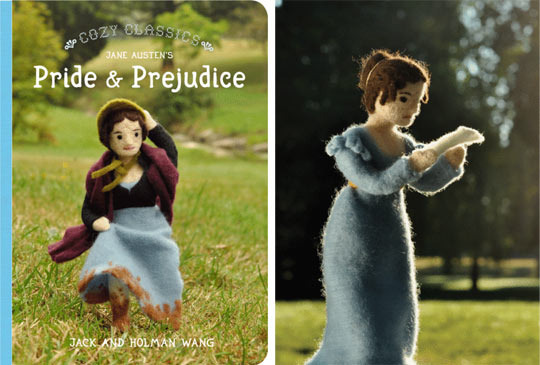Baby lit
Speaking of the matchless Miss Austen, Olivia has a baby version of Pride and Prejudice which tells the story, more or less, in fewer than 30 words. It's in fact a counting primer: “One English village, Two rich gentlemen, Three houses,” all the way up to “Ten thousand pounds a year.” It's clever and rather sweet, and it looks like this:

Olivia's cousin Elinor has a different baby version of the same novel, told in even fewer words, and illustrated with gorgeous photography. This is less educational for the under threes, but certainly a more faithful rendering of the story. It looks like this (note the muddy hem on Elizabeth's dress):

Both are lovely. I don't know if the babies prefer these classics to more contemporary infant literature, but for parents who like Jane Austen they're a delightful variation in a reading diet that otherwise consists almost entirely of bears. And ducks. So many ducks.